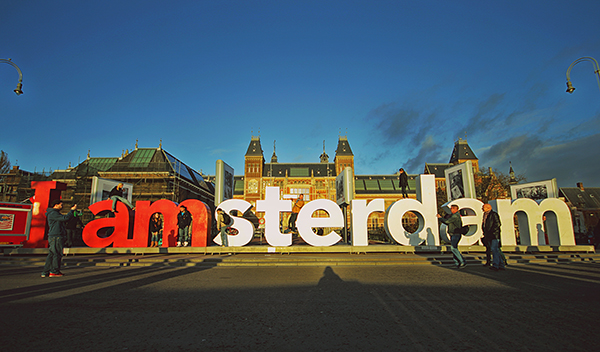As if authored by Kafka himself, foreigners and Dutch nationals returning to the Netherlands have landed in a bureaucratic nightmare. According to Dutch law, every new resident, whether they are a foreigner or a Dutch citizen returning to the Netherlands, is required to register at their municipality’sBasisregistratie Personen (BRP) or Personal Records Database, if they will be staying longer than four months. If they fail to register within five days of arrival, individuals risk a fine of 240 euros. For the registration, applicants are required to appear in person and the municipality office and identify themselves with official documents such as a passport. They also have to prove their residence in the municipality with either a rental agreement or ownership contract of a home.
Before the Corona pandemic, registration within five days was not a problem. However, since the implementation of 1.5-meter-restrictions, municipalities have been restricted visits to city halls, requiring citizens to first make an appointment. That by itself created a greater workload for civil servants. But since June, after travel restrictions for Dutch citizens were lifted, the same municipal authorities have been faced with an avalanche of requests for travel documents. Many travellers found their passports had expired during lockdown and urgently needed new documents to go on their long-awaited holidays. With the reopening of society, many local offices in major Dutch cities, especially cities with universities and international companies, are now swamped with requests for travel documents. This results in a backlog in registering new foreign students and expats, as well as Dutch nationals returning home after residing abroad.
Whereas in the past, civil servants could easily register newcomers within five days of arrival, now the delay in in-person appointments has grown in some towns to almost six weeks. Although it is understandable that municipalities are dealing with unprecedented circumstances, for the individuals required to register the delay causes far-reaching problems. Without a formal BRP registration, foreigners cannot apply for health insurance, cannot get vaccinated, cannot open a bank account, cannot start a job, cannot buy a car and car insurance, and cannot register their children in school. After all, it’s only when someone registers with the BRP, they are given a Burgerservicenummer(BSN) or Social Security Number. Just as in many other countries, without a BSN, citizens stumble in a Kafkaesque labyrinth, one they cannot find their way out of.
For international students wishing to study at the University of Amsterdam the bureaucratic backlash is causing serious trouble. The university offers more than 150 Master’s programs in English, which attract many international students. For the 2020-2021 academic year, due to the lockdown the university was forced to offer most of its courses online. However, for the 2021-2022 academic year, the University of Amsterdam eagerly welcomed students back on its website using slogans such as “come to Amsterdam” and advertising “on-campus education without restrictions”. Now, the 4,500 to 5,000 students that have traveled to Amsterdam and enrolled for the 2021-2022 academic year are forced to wait almost six weeks before they can officially register with the BRP. Although the university has notified students that they will not be required to register within five days of arrival and their legal status is not affected, they are expected to make an appointment for registry as soon as possible.
Nevertheless, international students who are staying in the Netherlands for more than four months, are still faced with the problem that they are not able to open a bank account. For some students this might not be a big issue as they can still get cash from an ATM from a bank in their home country. But if students get sick and need medical treatment in a hospital, they have a problem, as foreigners are required to have a BSN to visit a doctor or get treatment at a hospital. To ease the stress foreign students might have, the University of Amsterdam provides international students with a step-by-step guide, which anticipates anything that can go wrong and what kind of alternatives can be taken, including encouraging them to have an international insurance policy that covers their stay in the Netherlands. Hopefully, the Covid-19-restrictions and the registration issues are only temporary. Bureaucracy, on the other hand, is not.
Written by Benjamin Roberts
